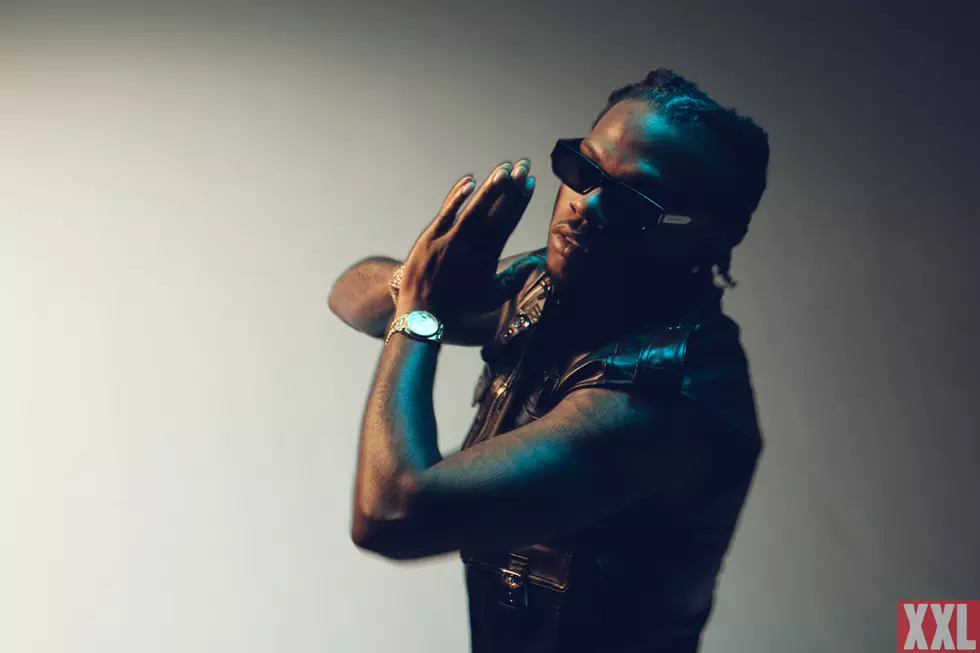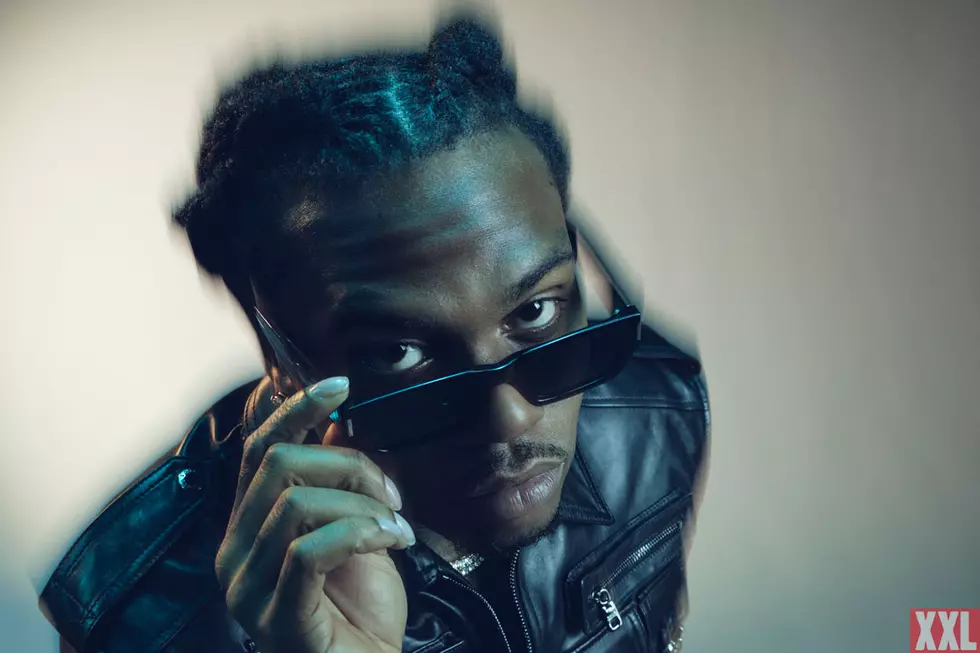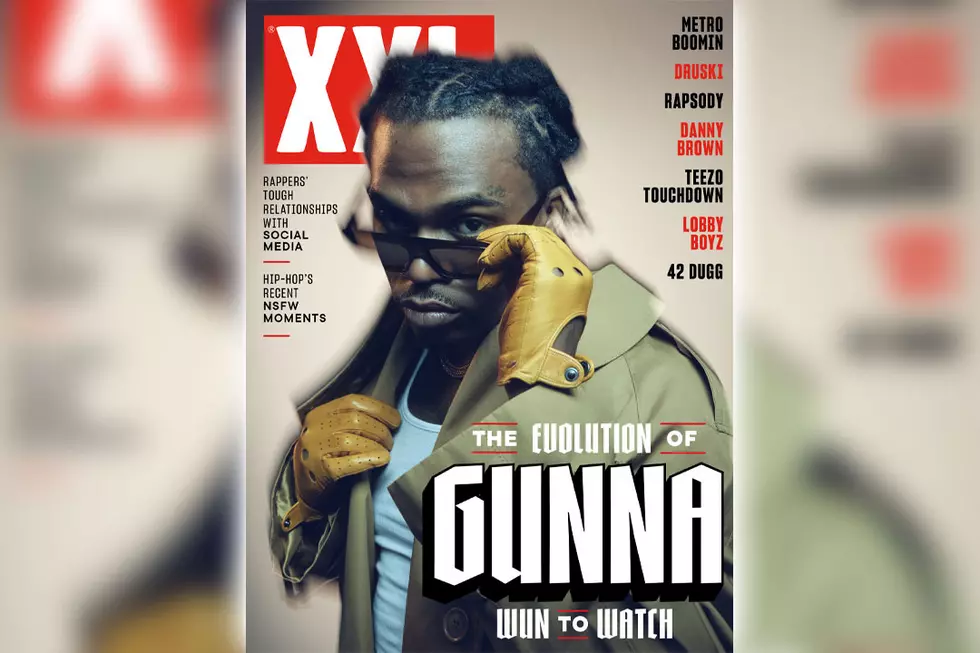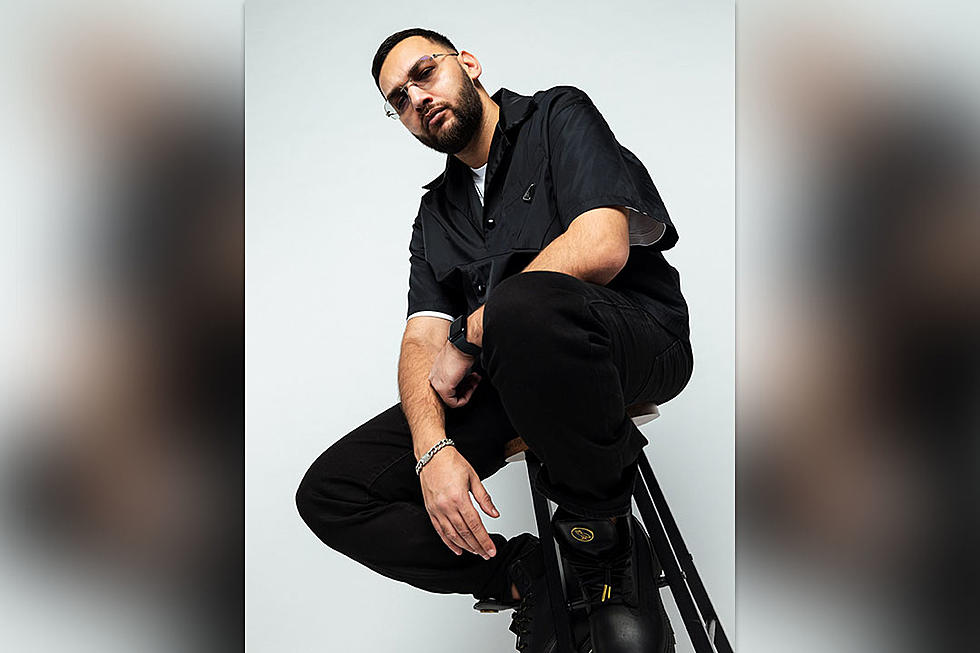Pitbull
Represent
 The guy strolling slowly down Calle Ocho in Miami’s Little Havana doesn’t look much like your typical rapper. Rocking fitted faded jeans, a wrinkled T-shirt and loafers crafted from an undetermined reptile—no watch, no gold, no diamonds—Armando Christian Perez, a.k.a. Pitbull, sets himself apart with understated style. “I’m not even into the whole baggy clothes and chains,” he explains, of his very-casual-Friday outfit. “Why buy a $100,000 chain that depreciates as soon as it touches your neck when I can buy real estate?”
The guy strolling slowly down Calle Ocho in Miami’s Little Havana doesn’t look much like your typical rapper. Rocking fitted faded jeans, a wrinkled T-shirt and loafers crafted from an undetermined reptile—no watch, no gold, no diamonds—Armando Christian Perez, a.k.a. Pitbull, sets himself apart with understated style. “I’m not even into the whole baggy clothes and chains,” he explains, of his very-casual-Friday outfit. “Why buy a $100,000 chain that depreciates as soon as it touches your neck when I can buy real estate?”
Around these parts, actually, the 25-year-old Cubano seems more like a local politician than a nationally known hip-hop star. Walking with something just short of a swagger, he greets neighborhood folks and presses flesh with the relaxed surety of an incumbent councilman running uncontested for reelection. He steps into El Pub, a crowded, no-frills joint serving heaping plates of Cuban cuisine, takes a table and orders rapidly in Spanish: the stewed chicken. “Our food isn’t good for us.” He turns and smiles. “But we love it.”
The restaurant’s patrons all seem to know each other, and to an outsider, the atmosphere feels somewhat guarded. Like folks are fine with you stopping by, but feel free to leave—soon. Blame the linguistic barrier: Here, English is considered a second language. Or maybe paranoiac aftereffects of the Communist regime they left back home. But Miami’s Cuban community is known for being fiercely insular.
Not Pit. Quite the opposite, actually. A fair-skinned, blue-eyed Latino who habla English, Spanish and Crunk, Pitbull carries symbolic passports from three countries: Cuba, the U.S. and the loosely defined hip-hop nation. He sees himself as an ambassador; and he’s determined to break down barriers, and spread his arms wide.
The young rapper, best known for “Culo” and “Toma”—rambunctious club hits that fuse crunk and reggaeton in celebration of female pulchritude—loves his hometown enough to have titled his 2004 debut album M.I.A.M.I. (Money Is a Major Issue). But he is a poster child for multiethnicism and the global clout of the groove born 30 years ago in the Bronx. “Identify with Black culture?” Pit asks and answers. “Of course I do. I grew up around it. Hip-hop opens your mind and makes you more liberal about things. Music unifies everybody and gives you form of expression. I don’t even want to say ‘Latin rapper.’ I’m a rapper who happens to be Latin.”
While Pit describes himself as “the Rickenbacker Causeway to reggaeton” (referring to the highway that links Miami to Key Biscayne), the last thing he’d want is to be ghettoized, or viewed as part of a trend. He’s got bigger pescados to fry. “I’m not even shooting for reggaeton,” he says. “I’m looking past that, I’m looking at Spanish hip-hop. Really making a fusion. With reggaeton, it’s high tide right now, it’s coming in, but it will level off. There will be some erosion, some damage done, but it will level off. Only the big boys will be allowed to survive.”
According to his friend DJ Khaled, Pit’s sure to be around for a long time. “I was the first one to play Pitbull in Miami,” says Khaled, whose posse-cut single “Born N Raised” gathers Pitbull, Rick Ross and Trick Daddy in an ode to the glories of their shared hometown. “And I consider him straight urban. Pitbull represents the Latinos, and has a lot of love in the urban market. He’s the type of artist who can go into a club in Carol City and rip it down with his flow and lyrics. And then he can go into the Latin community and flip it in the Latino language and kill it there, too. Not many people can do that, so he’s got the best of both worlds.”
 Pitbull, the first member of his immediate family to be born on American shores, was raised by his mother, Alysha Acosta, who came to the country in the early 1960s as part of Operation Pedro Pan, an airlift of some 14,000 unaccompanied children organized by Miami’s Catholic charities and the U.S. government. Armando Christian Perez Sr. left the family soon after his son was born. He would swing back around from time to time, though, and take Pit to the local taverns, where he’d place the youngster on the bar and have him recite the poems of Jose Marti—a leader of Cuba’s independence movement, and one of its most important writers, who died in 1895. For Pit, the impromptu performances were a crash course in ethnic pride. “The people would go crazy over me,” he says. “I still remember a couple of the poems.” In conversation, Pit ricochets back and forth between his two languages, and his accent is so thick, it’s hard to remember he was born here. “It’s my father, really, who instilled that about being Cuban. My mother told me, ‘You’re Cuban-American.’ My father told me, ‘Forget anything about America—you’re Cuban.’ I have history and culture due to me being Cuban. A lot of people here don’t have that.” (Sadly, as XXL went to press, Pitbull’s father passed away, at age 57, from liver disease.)
Pitbull, the first member of his immediate family to be born on American shores, was raised by his mother, Alysha Acosta, who came to the country in the early 1960s as part of Operation Pedro Pan, an airlift of some 14,000 unaccompanied children organized by Miami’s Catholic charities and the U.S. government. Armando Christian Perez Sr. left the family soon after his son was born. He would swing back around from time to time, though, and take Pit to the local taverns, where he’d place the youngster on the bar and have him recite the poems of Jose Marti—a leader of Cuba’s independence movement, and one of its most important writers, who died in 1895. For Pit, the impromptu performances were a crash course in ethnic pride. “The people would go crazy over me,” he says. “I still remember a couple of the poems.” In conversation, Pit ricochets back and forth between his two languages, and his accent is so thick, it’s hard to remember he was born here. “It’s my father, really, who instilled that about being Cuban. My mother told me, ‘You’re Cuban-American.’ My father told me, ‘Forget anything about America—you’re Cuban.’ I have history and culture due to me being Cuban. A lot of people here don’t have that.” (Sadly, as XXL went to press, Pitbull’s father passed away, at age 57, from liver disease.)
One of the most international cities on the planet, Miami pulsates with a variety of rhythms. A young Pitbull absorbed it all—merengue and salsa, calypso and reggae. And hip-hop. While he cites Nas’ 1994 Illmatic as his greatest inspiration, Pit can break down the history of Latino rappers like someone who was watching with vested interest. “There were rappers coming from Panama like El General,” he says. “Then you have cats like Gerardo with ‘Rico Suave.’ Mellow Man Ace, Cypress Hill, Kid Frost. But nothing really broke through ’til Pun. Fat Joe put him on, and it was like, Wow. We can do this!” Which is what he did.
In 1999, an 18-year-old Pit battled Ruff Ryder Drag–On at a DMX video shoot. Word of the feisty teen’s acumen reached Miami’s bass music don Luther “Uncle Luke” Campbell, who sought Pit out, signed him up, and took him along on the booty-shake revue. “I’m doing Alabama,” Pit says, “Mississippi. I’m going to the Black spots. And when I step onstage, I’m like a UFO. Like, What the fuck is this? But…,” he grins. “I would win them over.”
Fresh off tour, Pit began to flood Miami with independent singles and mixtapes, using a Calle Ocho barbershop as a distribution site. “I was giving them out for free and setting them up at Fademasters Barbershop,” he says. “Which I feel is like the trendsetter of Miami.”
Luke introduced him to a production team called the Diaz Brothers, and through them, in 2001, Pit met Lil Jon. The hyperactive Atlanta star dug the young MCs local hit “Oye” (“He said, ‘I don’t know what you’re saying in Spanish,’” Pit remembers, “‘but the record sounds good.’”), and invited him to join the Kings of Crunk project. That album would go double platinum, and at 21, Pitbull found himself on the cusp of something huge. Executives from Jon’s label made their way to Miami to check out what their star’s “Cuban cousin” was bringing to the table. Pit signed to TVT in 2003, and as he says, “From there it was history.”
Continue reading this feature in the August 2006 issue of XXL (#83).
More From XXL









